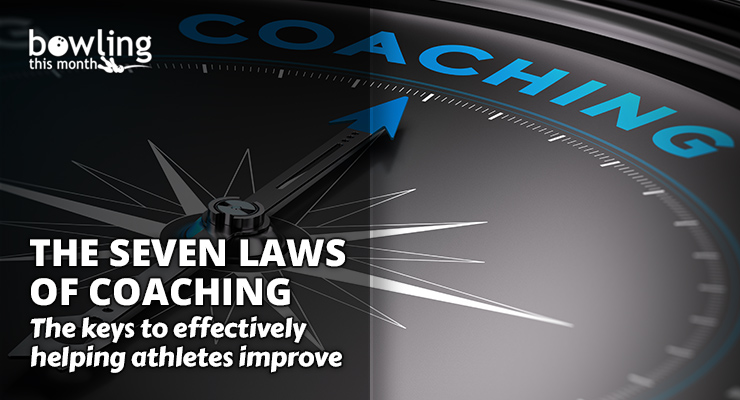Article Contents
- 1. Law #1: You must match and exceed the energy, investment, and intentions of your...
- 2. Law #2: You must understand what it feels like to be your player, mentally, emotionally,...
- 3. Law #3: You must have the psychological flexibility to be, and meet, your players’...
- 4. Law #4: Your goals must align with your players’ goals
- 5. Law #5: The coach’s job is to be a feedback generator, but act with good timing
- 6. Law #6: It is your responsibility to assist in making the process of learning, improving,...
- 7. Law #7: The single greatest gift you can give to your athlete is the gift of positive...
- 8. It’s that simple
Note: This article is only available to Bowling This Month subscribers.
Too many of us came up through our teaching, coaching, or mental game ranks believing that it was enough to learn skills and technical information in order to effect change in athletes. We thought that learning the game, working hard on understanding ball dynamics, and maybe grasping the fundamentals of sports psychology skills training would allow us to take athletes to the level they wanted to achieve.
We may have gone after this with dedication for years, with some achieving bronze, silver, or even gold level in the USBC system. You have possibly reached a coaching level that feels accomplished to you. Your players may have earned a level of success as well. Perhaps (hopefully), you don’t feel like you are done in your own progression of achievement.
There is nothing wrong with feeling satisfied with your scoring average, your skill level, your level of knowledge, or any other mark of achievement. But there is a point in any true growth process where you are not satisfied with the badges and honors you or your players have garnered. You want more. We actually hope you want more. The alternative is to be done growing as an athlete or a coach. We never endorse this endgame perspective.
“Be more concerned with your character than your reputation. Because your character is what you really are, while your reputation is merely what others think you are.”
—John Wooden
Our point of view is that coaching is a continuous transformation process. We often expect our players to strive, to reach, to bleed every now and then, but we are at risk of giving ourselves a pass on our own developmental process. Our philosophy is that it is not right to ask something of an athlete that you have not, or would not, do yourself.
“If you do not tell the truth about yourself you cannot tell it about other people.”
—Virginia Woolf
You must walk a path of truth in order to be the real thing. Your athletes will know the authenticity of what you are. And their gains will be tied to who you are as much as what you know. There are tons of smart people coaching in our sport. There are not tons of authentic humans who are willing to live the ...
Already a premium member? Click here to log in.


 (Only
(Only 